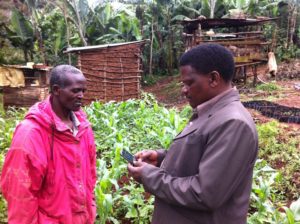
Search

The global development sector is making a massive deal about the need for more data collection but are we doing it right? Since the launch of the Sustainable Development Goals, token talk and substantive action has been around how data can provide us with more transparency, reinforce accountability and enable action-based decision making among many other benefits. But why now? Just because mobile technology allows us to? Or is it because there is a crackdown by donors and other funders on organizations failing to report the tangible impact they’ve had on the ground or do organizations really lack visibility into their own operations? I’ll leave that decision up to you. What has failed to be mentioned in a lot of rhetoric has been the need to ‘go beyond the numbers.’ Earlier this week, I read about the need for data with a ‘soul’ by the Tewodros Melesse, Director General of International Planned Parenthood. The piece got me thinking, are we actually collecting data with the right framework in mind?
We can’t just think about the numbers but need to keep in mind what the numbers represent and who they are helping. For instance, when your field officers are interviewing beneficiaries are they thinking about how the project or projects are impacting the beneficiaries’ lives? After your organization collects its field data and you analyse it through your sets of graphs and pie charts on spiffy dashboards are you looking at purely the numbers? I hope not.
By looking beyond the numbers you can better understand your beneficiaries’ pains, frustrations and irritations. It’s pivotal for organizations working with the world’s poorest to constantly stay in touch and connect with beneficiaries so they don’t become irrelevant. By you knowing their struggles, you can better offer solutions. For more insight, check out a piece that ran in Inc. (much of it, is applicable to our own organizations).
This is important whether you are just starting to collect data (if you need tips on mobile data collection, read this) or a data collection pro. By keeping in mind what the numbers represent, you’re able to determine which data is the most useful to collect and measure and ultimately improve your impact.
You cannot improve your work, unless you know who you are helping!
What are your thoughts? Comment below!
POST TOPICS
Sign up to receive emails with TaroWorks news, industry trends and best practices.
TaroWorks, a Grameen Foundation company.
Site by V+V